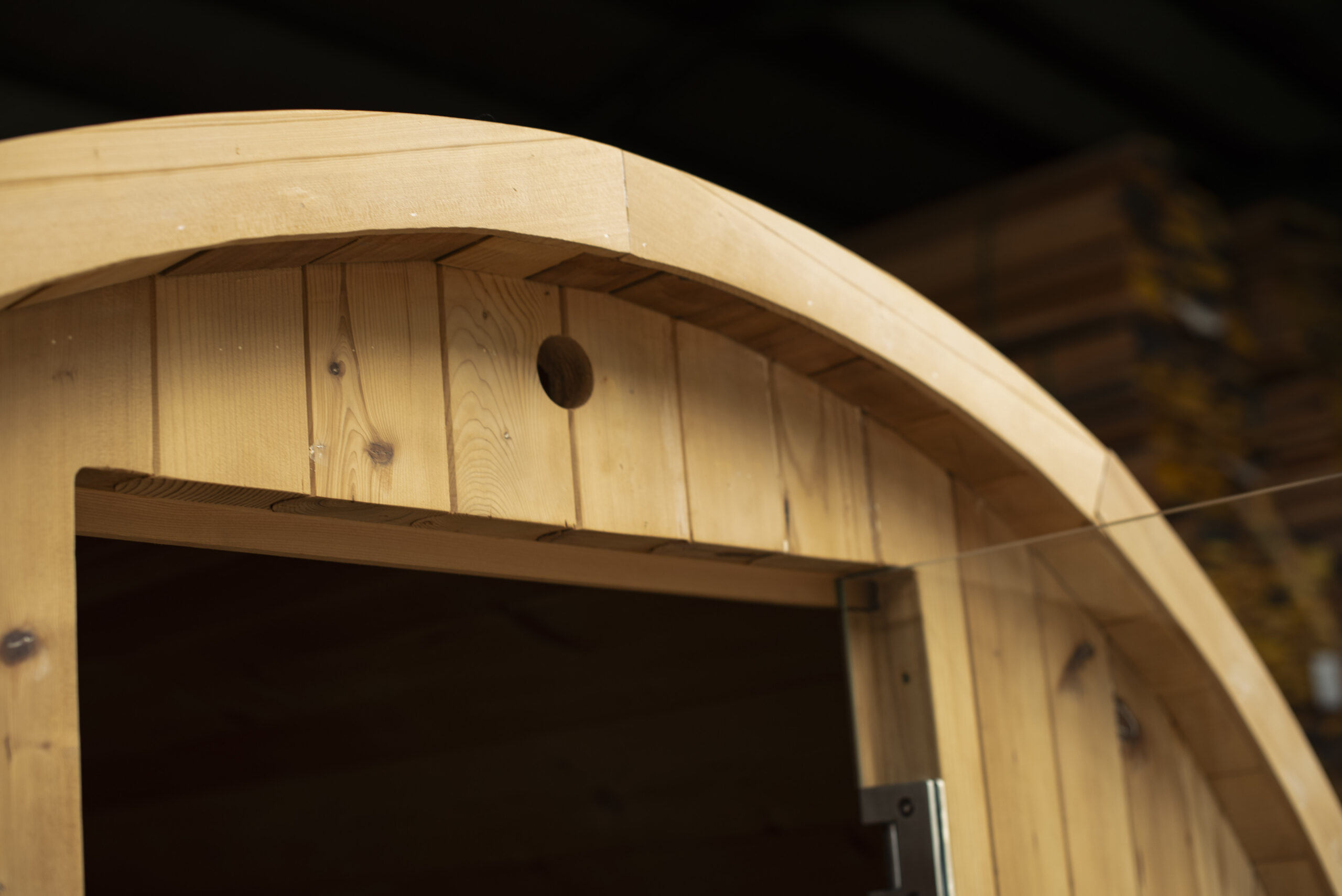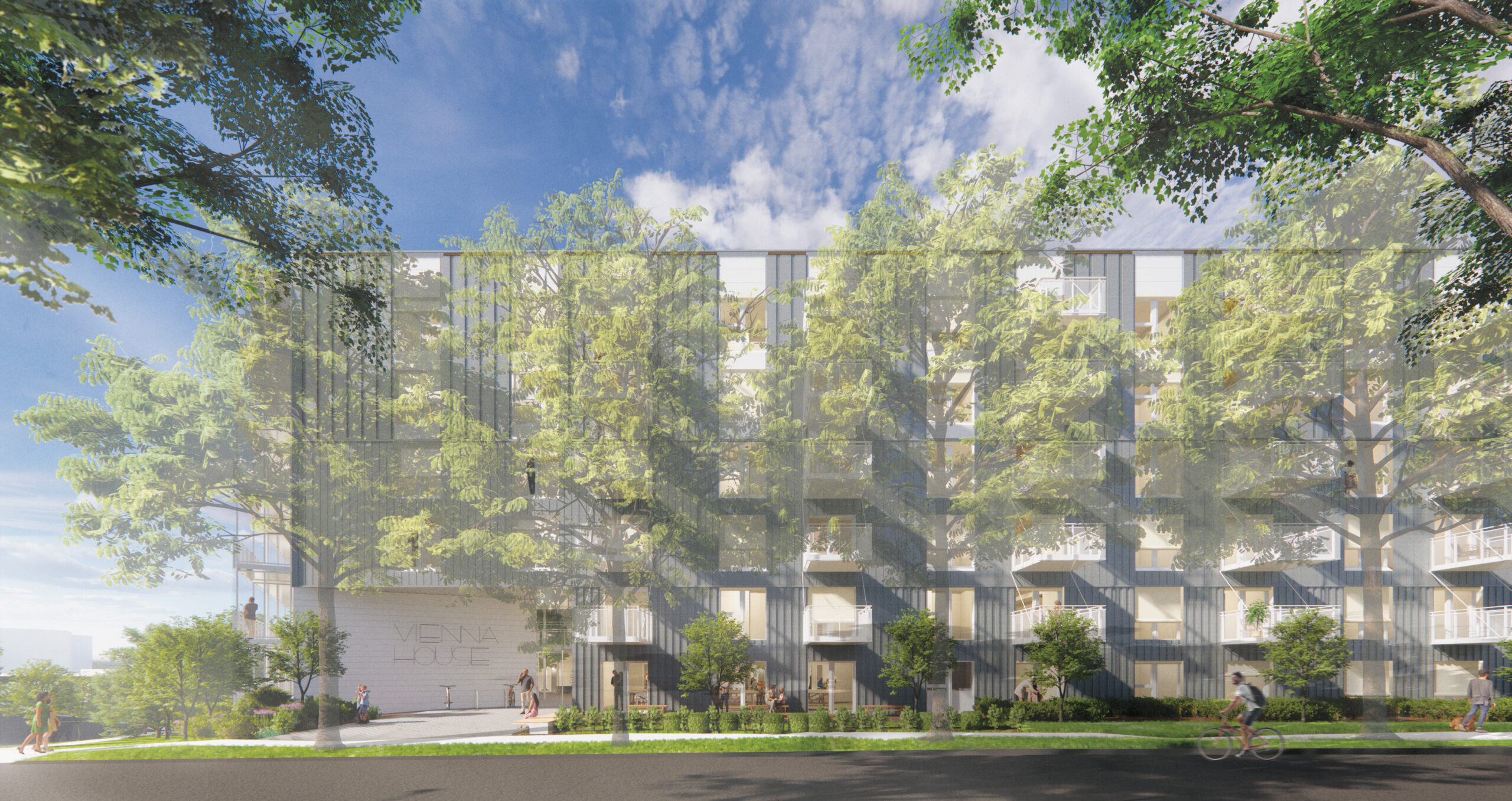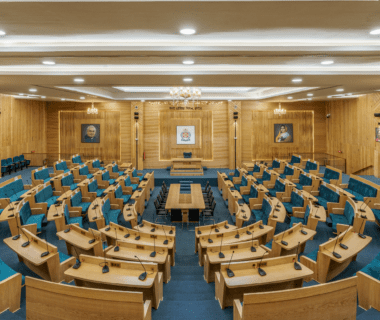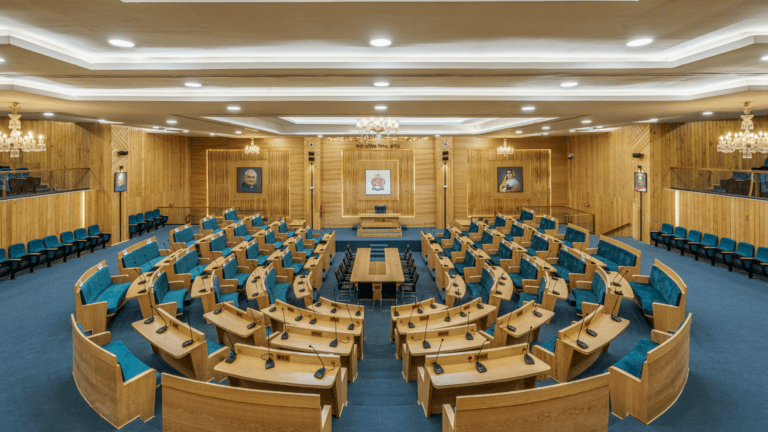Originally published on BC Gov News
The Government of British Columbia is investing $7.7 million to promote the use of B.C. wood, advance wood building systems and products, and expand global markets, Premier Christy Clark announced at the Council of Forest Industries annual convention today.
Premier Christy Clark made the announcement in her keynote speech, which spoke to government’s actions on the softwood lumber file. Diversifying markets and reducing reliance on the United States market continues to be a key part of government’s strategy to keep B.C.’s forest sector strong.
“Forestry will always play a crucial role in communities throughout B.C.,” said Premier Clark. “By growing international demand, we are decreasing our reliance on a single market, creating more opportunity, and supporting the tens of thousands of British Columbians who rely on forestry.”
The annual funding is being made available to 14 different industry trade associations and research institutes that deliver market development programs on behalf of government and industry. B.C.’s contribution is being managed through Forestry Innovation Investment, the Province’s market development agency for forest products.
“Over 90% of B.C.’s forest products are exported, making international trade vital to the success of the forest economy,” said Minister of International Trade Teresa Wat. “Market development and diversification not only safeguard against global uncertainties, but also create new, higher-value opportunities for B.C. producers.”
Of the $7.7 million, $5.9 million will be made available for activities targeted at expanding markets for B.C.’s wood products, with investment priorities that reflect evolving market opportunities in Asia and North America. The remaining $1.8 million will be made available for activities delivered through the Wood First program, which fosters the innovative use of wood and wood building systems in B.C. through research, education, marketing and capacity building.
Advancing wood use and growing international markets is a collaborative effort. The Province will cost-share these activities, with additional funding being provided by industry and the federal government through Natural Resources Canada.
“B.C. is internationally recognized as a leader in sustainable forest management,” said Minister of Forests, Lands and Natural Resource Operations Steve Thomson. “As the benefits of building with wood become more widely recognized – including its lower carbon footprint, its cost-effectiveness and its versatility – our reputation will continue to position us as a preferred supplier of environmentally friendly forest products.”
Building international markets for B.C.’s natural resources is a component of the BC Jobs Plan. The B.C. forest sector employs more than 60,000 British Columbians and supports over 7,000 businesses.
“A strong forest sector requires the co-operation of industry and government,” said Susan Yurkovich, president and CEO, Council of Forest Industries. “Given the current challenges we face, the importance of working together to diversify offshore markets for B.C. forest products has never been greater.”
Quick Facts:
- In 2016, B.C. exported $13.9 billion in forest products (lumber, pulp and paper and other wood products), which represented 35% of B.C.’s total exports.
- Canada is the international leader in sustainable forest management certification with B.C. contributing more than any other province.
- Wood products from the Province’s sustainably managed forests help tackle climate change by being a renewable building material and a means to store carbon.
Learn More:
“Taking a Stand: United Action on B.C. Softwood Lumber” connects B.C. companies and communities with international opportunities and promotes our competitive advantages to investors and decision-makers around the globe:
Connecting B.C. companies and communities with international opportunities and promoting B.C.`s competitive advantages to investors and decision-makers around the globe: www.BritishColumbia.ca
The BC Jobs Plan: http://engage.gov.bc.ca/bcjobsplan/
Forestry Innovation Investment is the province’s market development agency for forest products: www.bcfii.ca
A comprehensive information resource featuring the facts and science about wood species, sustainable forests, product manufacturing and building innovations in British Columbia: www.naturallywood.com
Trade associations and research institutes receiving funding
Funding is delivered by the Province through Forestry Innovation Investment Ltd.
Funds are allocated through an annual competition process that reflects the priorities of the B.C. government and the forest sector.
BC Wood Specialties Group – $1.08 million
- Educate and train architects, engineers, interior designers and construction professionals on available B.C. wood products and their applications through a variety of educational events, such as lunch-and-learn sessions, group seminars and factory tours.
- Promote building products and systems, as well as the benefits of wood in construction and design, with value-added forest products companies at trade events.
- Increase competitiveness, innovation and adaptability of individual value-added wood companies by improving their marketing and business development capability through assessments, site visits, workshops and business development projects.
- Pursue niche opportunities for value added wood products at high impact trade events in the United States and Canada.
- Bring together B.C. and Canadian value-added wood products manufacturers with pre-qualified international buyers and specifiers at the 2017 Global Buyers Mission in Whistler.
- Open doors for market opportunities and increase sales in China, Japan, South Korea, Mexico and Europe.
Canada Wood Group – $3.26 million
- In China: pursue innovative uses of B.C. products for wood in construction and wood in manufacturing by addressing code constraints and providing training and quality support.
- In Japan: develop innovative solutions to expand the use of lumber and panel products in large scale buildings.
- In South Korea: continue wood-frame design and construction training to support innovative building solutions for larger scale developments, including multi-family structures and infill walls.
- Expand the B.C. forest products sector’s global reach with market access and -development teams in China, Japan, Korea, Europe and India.
- Respond to global phytosanitary barriers to trade and product-acceptance issues for B.C. wood products.
Canadian Wood Council- $535,000
- Provide technical support and advice to address wood performance attributes in multi-family, multi-storey and non-residential projects.
- Convey practical wood design solutions through educational events.
- Communicate sound wood construction practices.
- Support building and fire code changes that address the use of wood.
- Broaden wood design awareness through a wood awards program.
Cedar Shake and Shingle Association – $125,000
- Encourage the use of cedar roofing and sidewall shakes and shingles as a product of choice among specifiers in the UnitedStates with a multifaceted education and marketing campaign.
Coast Forest Products Association – $108,000
- In Japan: promote the use of B.C. Coast Species for innovative hybrid solutions for multi-unit, institutional and other non-residential buildings
- In China: increase awareness, technical knowledge of B.C. coastal species and create demand in a wide range of manufacturing applications.
FPInnovations – $217,000
- Improve entrepreneurial skills of small- to medium-size wood product manufacturers by improving their capacity to adopt new manufacturing technologies and develop new products through technology transfer projects, technical assessments, workshops, webinars and face-to-face outreach activities.
- Research mitigation of construction moisture risks in mass timber systems.
University of British Columbia – $465,000
- Support value-added manufacturers in their development of new products through design, engineering, prototyping, testing and cost/benefit analyses.
- Foster collaboration between manufacturers and industrial designers in various subsectors of the value-added wood industry through organizing a series of networking meetings.
- Explore and convey advanced wood processing solutions, such as industrial robotics and mixed reality wood fabrication, through educational programs.
- Research and document the full construction process of UBC’s Brock Commons Tallwood House student residence.
University of Northern British Columbia – $160,000
- Conduct research to prepare ductile connection details for use in mass timber structures in seismically active regions.
- Investigate the performance of timber concrete composite floor systems.
- Research the optimal configuration of mass timber and tall wood building hold-down connectors.
- Convey advanced wood processing and building design solutions through educational programs and events.
Council of Forest Industries – $254,000
- In China: open doors for existing applications and innovate new applications for B.C. forest products, such as energy-efficient wood wall systems and tourism-oriented structures.
- In Japan: expand opportunities for SPF lumber by promoting wood-frame and hybrid construction in the non-residential sector and in large-scale buildings.
- In South Korea: grow the use of SPF lumber in multi-storey / multi-unit buildings, and for infill wall systems.
Engineered Wood Products Association (APA) – $45,000
- Create new opportunities and demand for B.C structural panels and engineered wood products in large-scale non-residential construction in Japan with a diversified promotional and educational program for Japanese specifiers.
Western Red Cedar Lumber Association – $1.01 million
- Increase market awareness and improve Western Red Cedar’s value proposition with an integrated comprehensive program of marketing, communication, education and outreach efforts.
Wood Pellet Association of Canada – $90,000
- In Europe: communicate sustainability of B.C. wood pellets to the power generation and heating sectors, and improve the regulatory environment for wood pellets.
- In Japan: identify new customers for industrial wood pellets and increase the amount of volume under long term sales contracts.
- In Canada: position wood pellets in the power and heat sectors as a viable biomass alternative for coal in the effort to mitigate the impacts of climate change.
Wood Products Council – $445,000
- Work toward shifts in the U.S. design and builder community that result in greater wood use in non-residential and multi-unit construction projects.
- Provide technical advice, education, and support in order to drive demand and support the specification of wood in midrise and mass timber structures.



